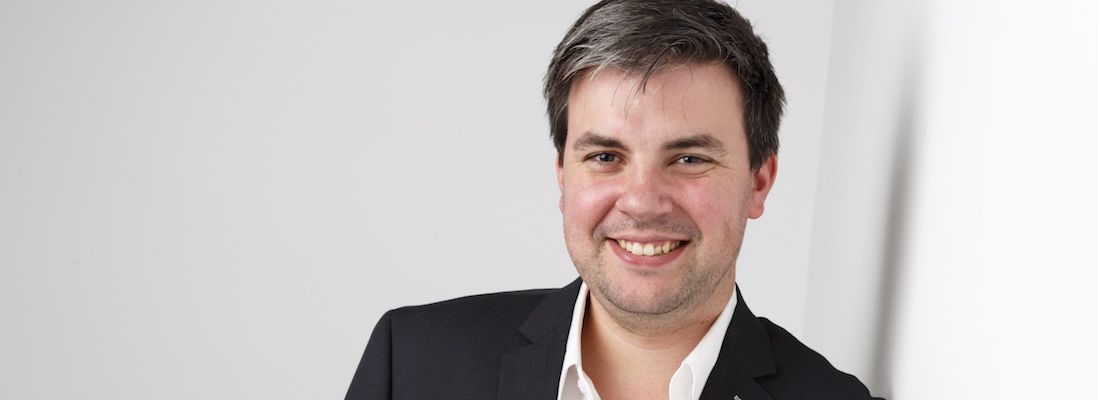
Reading time: 4 Minutes
Entrepreneurship runs in Kai De Sutter’s family, but it was only after his father encouraged his passion for technology that he found his calling in coding. Now he not only finds innovative solutions for his software and web design clients, but also finds creative ways to manage his schedule and make time for charitable activities and family life.
We caught up with Kai to find out how his energy and pragmatism have aligned in several successful ventures.
How did you come to start your own business?
I was working at a market research company called Helion Research but, with many small businesses in my family, entrepreneurship was always on my mind. So I started KangaCoders and began gathering other clients on the side including small businesses, events organisers and government projects.
Then someone contacted me to work on a platform aimed at festivals. After the platform launched, we partnered with lots of smaller festivals until the man who invited me to join the business left. I took over and the app became Showbase. Now we’ve improved the product and have some huge festivals and sports events working with us.
Initially I continued working with Helion, but as my businesses started to grow faster I left to focus on them full-time.
But you still found time to donate to a good cause…
Indeed. Every other weekend I tutor children with CoderDojo. I teach them to develop but also to play with electronics like Lego Mindstorms – it’s good fun!
How did you get involved with that?
I started experimenting with technology when I was very young. I’m actually a little bit autistic – I have Asperger syndrome – and my father kind of sensed that. He gave me my first computer when I was eight years old and I fixed it myself. When I was about nine I started developing my own websites. But back then there was nothing to support children like me, so I learnt everything on my own.
Now I have children myself and my oldest son is also a little bit autistic, and I was looking for something for him. I found CoderDojo and started sponsoring them. Before long I was coaching there as well!
Has working with CoderDojo helped you too?
I used to feel like everyone was the same when I was little. Everyone was like me. Only now do I realise that some parts are special and I see that in many of those kids as well. They’re not really sure about themselves, and I like to help them realise that they have a gift, and to help them do something with it for the future. It’s a beautiful thing.
Tell us something that surprises people about what you do.
The creativity. People don’t seem to realise that programming is a creative process and you really need to think outside the box. There’s technology in everything and that means there aren’t many limits to what you can do. You can combine electronics with applications and make incredible things out of nothing.
You’re also a businessman, so what’s the biggest lesson you’ve learned from starting a company?
That you need to learn to work with other people as soon as you can. For me, that was new and the most difficult part of starting a business, but at some point you need to hire people. I was the type of guy who wanted to do everything himself, but of course that’s not scalable. The lesson is to search for help, even with small stuff, to outsource things and learn from the experience.
As a self-confessed geek, have you found any software or tools that help?
We make use of business tools from Zoho, but I still like the personal approach as well. Clients come to us, they explain everything they want, we put those things in backtrackers or huge lists, and then we try to translate that into a working product.
What matters most to you about where your business is based?
For us a physical presence and a professional look were the most important things. Obviously you start with only a handful of clients, and ours all happened to be in Antwerp, so it was a logical decision for us to go looking for something there. But as a startup it’s really helped to have someone picking up the phone and collecting post – that kind of stuff just makes you look more professional.
We’re in multiple countries too. I’m actually calling you now from Bulgaria where we rent a Regus office as well. It’s perfect for that. You can really bootstrap your company.
How do you manage to juggle work and personal responsibilities?
Outsourcing! You just have to focus on the area that you specialise in, that’s the main trick. It’s actually very enlightening to see how many of the things you do daily could be easily outsourced.
In the beginning I did everything myself and I had absolutely no free time. My kids barely knew me, and I felt very bad about that. I realised I had to do something, so I started analysing what we could change, what time-consuming tasks we could outsource, and that’s what I try to do now.
Kai De Sutter is partner and owner of KangaCoders, Showbase and Gridbox, and based primarily in Regus offices in Antwerp, Belgium. In London, he works in the Trafalgar Square centre.
Top tips from Kai:
- Keep hacking your life and your business. There’s always something you can learn from and improve.
- Believe in yourself. Don’t listen to negative people – instead identify and learn from the best characteristics of those around you.
- Stay healthy and take time for yourself. If you’re happy and positive, you’ll attract positive people.


